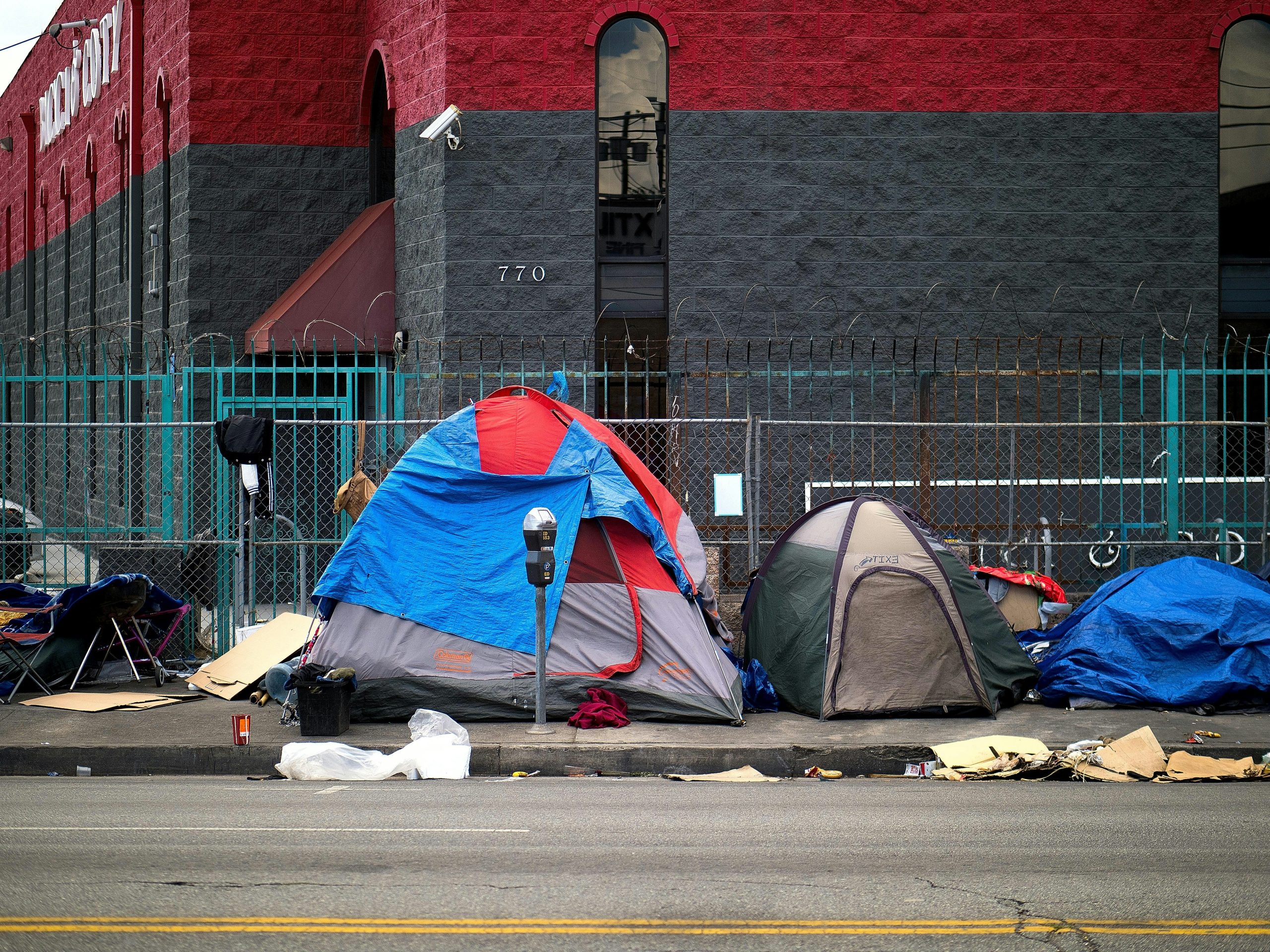Featured Guest
You’ll find this guest among our growing roll of Urban Champions.
-

John Tory
Mayor of Toronto
Summary
A roundup of the most compelling ideas, themes and quotes from this candid conversation
Context
In Toronto, hotels, restaurants, bars, live theatre and music venues; performing arts companies, corporate and party event spaces; these are the generally small and medium-sized businesses that have been most devastated by the pandemic, decreases in pedestrian life, and require immediate interventions in order to survive the coming weeks and months as the impacts of COVID-19 wear on. This is particularly true in the downtown core. These businesses and organizations are requesting targeted interventions curated for their individual sectors, with relief calibrated to the actual percentage of revenue lost. This sector is one of the hardest hit.
Summit Format
In consultation with the Entertainment and Downtown-Yonge Business Improvement Areas, the Mayor convened a listening session for representatives from these four sectors to lay out the challenges they were facing, and their recommendations for actions by government. In addition to the Mayor, the meeting was also attended by Councillor Brad Bradford, and by elected officials from the federal government: Adam Vaughan (Parliamentary Secretary to the Minister of Families, Children and Social Development (Housing) and Rachel Bendayan (Parliamentary Secretary to the Minister of Small Business, Export Promotion and International Trade), Julie Dabrusin (Parliamentary Secretary to the Minister of Canadian Heritage) and Julie Dzerowicz (Member of Parliament, Davenport). The provincial government was unable to send a representative but was supportive of the session and interested to hear its results.
The meeting was convened by the Canadian Urban Institute (CUI) and facilitated by its CEO Mary W. Rowe. Although the focus of this session was Toronto, many of the challenges expressed during the session represent common areas of concern for Canadian cities. CUI is working across the country with partners to raise the issues facing local economies: www.bringbackmainstreet.ca and www.restorethecore.ca.
Key Challenges
The liquidity crisis.
Small and medium-sized businesses in the hospitality sector commonly operate on slim profit margins. Due to the economic lockdown and continued social distancing requirements, many of these businesses are reporting sustained 80-90% decreases in revenue, with little reprieve during the summer months. And a number of businesses not able to operate at all due to the shutdown, have seen their revenues reduced by 100%, while most fixed costs have remained. Theatre venues, for instance, have remained closed throughout the summer. While online events may have helped to keep audiences engaged and artists employed, they bring in no additional revenue for these businesses/operations. Many hotels in Toronto’s downtown core are operating at less than 10% capacity. Although chains are present in downtowns, most are franchises with Canadian owners and local workforces. The impact of COVID-19 lockdowns continues to place extraordinary pressure on enterprise cash flows. The latest crisis that needs to be addressed: skyrocketing commercial insurance rates. Another example: restaurants are now allowed to sell takeout alcohol but are forced to pay (and pass along to the consumer) a premium.
Existing government programs need to be more targeted.
Greater supports are required to keep this sector viable in the longer term. The government’s commitment to extend the Canadian Emergency Wage Subsidy (CEWS) program into 2021 is crucial. But concerns were expressed that not all businesses are affected equally by COVID-19, with some sectors (e.g. digital) actually flourishing, while others like hospitality, which depend on foot traffic and tourism, are profoundly challenged. Funding frameworks must be further tailored to provide resources for those hardest hit industries. Hotels, for instance, continue to accumulate debt and 60% – the majority of which are smaller and independently owned – are stating that they are running out of cash to pay staff, in addition to other fixed costs. Furthermore, a significant percentage of the hospitality sector’s downtown workforce are women, newcomers and drawn from racialized communities dependent on public transit to get to work. Public investment needs to prioritize supports for these workers and ensure the sector is able to rebound once travel and other public health sanctions are lifted.
Governments need to support an approach that allows businesses to open and remain open.
Businesses need certainty: to know what they need to do in order to reopen and/or continue to operate safely. Participants in the session urged governments to challenge the hospitality sector to develop its best practices, and set the highest of standards possible in order to ensure public safety and constrain virus transmission, so that their businesses and operations can remain viable. Economic lockdowns are not a sustainable solution to the current crisis. Restaurants and theatres and other mixed venues are keen to work with government to establish protocols – such as seating limits and distancing minimums, as well as promoting the Government COVID-19 APP as another protocol tool to safely access restaurants. This will ensure public safety while continuing to provide patrons with the quality of service and experience they come downtown to experience. Meeting participants cited other cities around the world that are developing their own innovative approaches – and called on Toronto to lead the way.
Need for regulatory clarity and fairness.
While strip clubs and movie theatres were permitted to reopen during the summer in Ontario, live theatre venues have remained closed. This type of regulatory inconsistency confuses consumers, and has also caused significant economic hardship for artists, performers and the larger cultural sector which employs thousands across Toronto. Theatre venues may be difficult to maintain, but they are even harder to establish anew. In Toronto, many of our venues are cultural landmarks, and once lost, they will be unlikely to return. Also, given that performance venues in Toronto are a mix of for-profit and not-for-profit enterprises, government need to find a way to support both. As ticket and sponsorship revenues have dried up, so too has the charitable support that so many cultural organizations have come to rely upon, which is raised through galas, events and donations. The government needs to rethink its tax regime to reincentivize charitable donations, particularly towards operations.
Pivoting from short-term solutions to long-term viability.
All the components of the hospitality sector need to be able to plan for immediate term survival and long-term recovery, which means knowing the longevity of available supports and receiving clear messaging from government. The hospitality sector has much to offer to the policy development process and is looking for governments to engage with them directly as they design continued relief and future investment.
Proposed Actions for Consideration
Federal Government
- Reimagining the Business Credit Availability Program (BCAP) Guarantee to support Canadian hotels
- Further tailoring the Canadian Emergency Wage Subsidy program (CEWS) to those hardest hit businesses (i.e. providing increased funding levels to those that have lost 80-100% of their revenue)
- A Digital Services Tax (DST) to level the playing field between Canadian businesses operating locally and on-line international companies
- A “fixed cost relief program” that provides support in proportion to relative revenue loss
- Larger forgivable loans made available to hardest hit Canadian businesses
- Re-evaluate eligibility requirements that consider some businesses technically “open” and are therefore disqualified from receiving funding granted to businesses that have been forced to close for public health reasons (e.g. restaurants)
- The creation of a charitable donations program for the arts that the federal government would match dollar for dollar (or better) donated towards operating costs
Provincial Governments
- Greater regulation of the insurance industry in order to make insurance more accessible and prevent fee hikes
- 30% discount off licensee purchases from the LCBO (as in British Columbia)
- Invest in digital infrastructure for the arts/entertainment sectors (could also be a recommendation to the federal government)
- Allow theatres and other live venues to be permitted to reopen at reduced occupancy levels (If churches are allowed to open at 50% occupancy, why not performance venues?)
- In the run-up to the holiday season, the government should implement a sales tax rebate program that encourages people to spend money at local businesses
- Clearer public health messaging to avoid confusion and build public confidence (not erode it)
- More efficient COVID testing and contract tracing to build public confidence
Municipal Governments
- Continued campaigns to increase consumer confidence and connect businesses with consumers
- The creation of new ‘pop up’ all-season venues to permit customers to feel safe while eating/shopping indoors throughout the winter
- Remove unnecessary red tape for artists looking to use municipal property/spaces – for example encouraging ‘meanwhile leases’
- Greater relief for businesses via property taxes and utilities
- Greater infrastructure investment within Toronto’s downtown core – a participant specifically mentioned the rail deck park and waterfront redevelopment projects
All governments should promote the COVID-19 App, which, when accompanied with more effective tracing/tracking and rapid testing, can effectively be added as a tool for safe access to indoor dining.
Next Steps
The Mayor committed to work with CUI and initiate a joint conversation with provincial and federal governments immediately to address the challenges raised here.
Full Panel
Transcript
Note to readers: This video session was transcribed using auto-transcribing software. Manual editing was undertaken in an effort to improve readability and clarity. Questions or concerns with the transcription can be directed to events@canurb.org with “transcription” in the subject line.
Full Audience
Chatroom Transcript
Note to reader: Chat comments have been edited for ease of readability. The text has not been edited for spelling or grammar. For questions or concerns, please contact events@canurb.org with “Chat Comments” in the subject lin
From Canadian Urban Institute: You can find transcripts and recordings of today’s and all our webinars at https://canurb.org/citytalk10:02:45 From Canadian Urban Institute : Welcome! Folks, please change your chat settings to “all panelists and attendees” so everyone can see your comments.
10:09:01 From Canadian Urban Institute :
RestoreTheCore.ca
Bringbackmainstreet.ca
Canurb.org
10:46:49 From Heather Morand Clark : If theatres have to operate with a 50-person maximum audience, or even at 30% capacity, how can that be profitable? Ticket sales wouldn’t cover artist fees and other costs
10:49:33 From Shelby Cook : Yes! Other countries have opened up performances. There are thousands of musicians and music students in the GTA who really are hurting right now. There are not enough opportunities for everyone during this time. People do not want to just tune into zoom concerts. Why are there maskless protests but not masked concerts? It is not just professional musicians, but the amateurs, too.
11:06:36 From Matt Peacock to All panelists : Hi there, wondering if there is the possibility of a more defined separation of the restaurant sector from bars/clubs as it come to shutdowns. Two completely different beasts
11:06:42 From George Bozikis : When speaking about Toronto, it’s important to stress the core of Toronto. The suburbs are fairing much better. People have been become brainwashed that it’s more dangerous in the downtown core.
11:07:39 From Aleem Kanji : All the government subsidies in the world won’t matter if businesses aren’t able to maintain insurance which is legally required to open. The Province needs to act and prohibit insurance denials and price gouging. More info here: https://www.theglobeandmail.com/business/article-ontario-restaurants-bars-face-soaring-insurance-costs/
11:14:34 From Jacoba Knaapen : Responding to Heather’s question regarding limited capacities for theatres. It is not a lucrative ratio for our theatres and the financial formula doesn’t work for the vast majority of the venues.
11:15:27 From Shaun Bowring : the CEBA 20k expansion although welcome falls extremely short of what is required for live music venues. As a sector we thought that number was going to be 40k per quarter… in the 200k range for the program.
11:19:05 From Adam Vaughan to All panelists : The two most complex and daunting realities we face in COVID programme design are having no ability to accurately predict the timetable or the depth of the pandemic. As a result programmes are launched in serial form to allow us to reform and fine tune in real time. Todays meeting is critical to this process. thanks for the strong advocacy and the detailed factual impacts. We have heard the anecdotal concerns. Today’s information is what will help us advocate for you. Thank you.
11:20:35 From Heather Morand Clark : There is a real worry in the arts sector that people will become complacent, and less willing to go out to live events even when they become available after being at home, watching on screens month after month
11:21:09 From Frederic DIMANCHE : Good point by John K. I talked last week with event professionals in New Orleans, Austin and Las Vegas who made the same point: We can work with capacity (30% or else), but the shows will be indeed different. New Orleans is already doing more intimate music events.
11:23:03 From Brad Lepp : Tailored programs to revenue yes, but also needs to be very simple and clear and consistent. A lot of small businesses can’t make sense of all the nuances of regulations.
11:24:00 From Susie Grynol to Brad Lepp and all panelists : Agreed.
11:25:17 From Shelby Cook to All panelists : Yes! Can people arrive a little early at a performance and get a rapid test before they enter the venue, maybe pay a small extra fee, voluntarily, maybe? ***** I hope governments can do whatever Jesse Kumagai and John Karastamatis are saying to do!
11:28:16 From Mary W Rowe : stay in touch with us on these issues please- very important to sustain continuous adjustments and timely action
11:29:58 From George Bozikis : Whatever assistance comes our way, it must come immediately.
11:31:05 From Barry Taylor to Brad Lepp and all panelists : greater than 85-90% revenue loss is effectively closed
11:32:27 From Tony Elenis to All panelists : these suggestions need to be added into an action format and reviewed with group in a similar meeting
11:33:12 From Canadian Urban Institute : Contact us at cui@canurb.org
RestoreTheCore.ca
Bringbackmainstreet.ca
Canurb.org


